Nature is calming
What it is that people experience when out in nature that makes them feel, somehow, better in themselves? A sense of something calming, but also energising, when spending time in nature, appears to be a commonly shared experience for the majority of human beings.
Why is that the case? Is there something magical happening outdoors that doesn’t happen indoors? Why does spending time in nature commonly deliver a sense of peace, a feeling of being able to breathe more easily, a sense of feeling safe and ‘at home’?
The answer lies back in the roots of our human ancestry where our connection with nature was integral to our daily life far more than is the case today. Being attuned with nature was at the centre of human life experience, and this ancient human bond with nature still persists within us, although these days it is, for many, well hidden.
This explanation probably goes a long way to explain why humans today have a deep-seated, subconscious awareness that in nature we are ‘at home’, and when we are ‘at home’, we can relax, we can experience feelings of being safe because we are somewhere, somehow familiar.
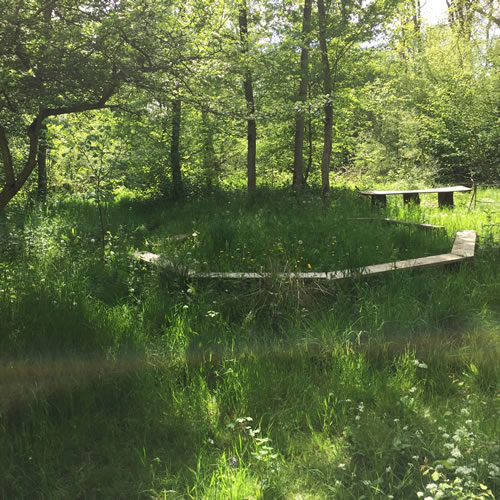
Humans find nature soothing
The theory of Biophilia describes an innate biological need humans have to connect with nature, and is a well researched explanation about why human beings seek out connection with nature..
Take a few moments to think about when you might have sought out time in nature, seeking ways to calm yourself from dealing with a stressful situation you’ve experienced, an argument you had, negative thinking you couldn’t shift.
Understanding how exposure to nature impacts on our bodies and how this links through to our mental wellbeing can help us better understand how nature can also help children, in the same way too.
If you want to find out more about our SEN sessions
Nature immersion benefits emotional regulation
Becoming aware of how nature immersion can positively affect our mental, physical and emotional states, without us being consciously aware of what’s happening, is a powerful resource to tap into, and one that has plenty of scientific back-up that ‘it works’.
Richard Louv has written many articles and several books on how nature connection and nature immersion delivers wellbeing benefits. To quote from him –
“Time spent in nature is the most cost-effective and powerful way to counteract the burnout that we feel when we sit in front of a computer all day”
As adults, many of us can relate to that. However, children, and it could be said especially children on the spectrum, can experience the same ‘burnout’ from their interactions with daily life, never mind just in relation to being in front of a computer.
Numerous scientific studies have shown that regular nature immersion, whether in woodlands, by the sea or up in the hills, benefits emotional regulation, reduces anxiety and muscle tension, boosts the immune system, reduces blood-pressure and also the release into the body of stress-related hormones such as cortisol and adrenaline.
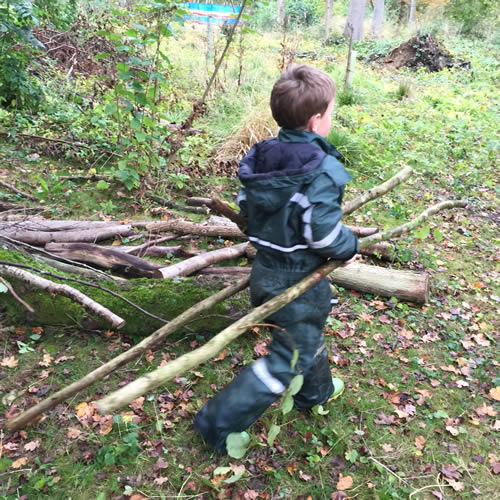
Nature immersion can effect change
Cultivating a relationship with nature is like discovering a non-judgmental friend, one who is just there as a supportive presence.
Spending just two hours immersed in nature, on a regular basis over a period of time, soothes the nervous system and can help restore and rebalance emotions.
if you take the time to slow down and ‘just be’ Nature can give people what they need.
Once the mind ‘allows’ a person to take time to ‘just be’ then change can start to happen.
Change that’s not effected by plans or strategies. Changes that happen through becoming aware of feeling better, somehow, through being immersed in nature. The ways people feel better in themselves need to be experienced, are individual to each person – in ways that are beyond words.
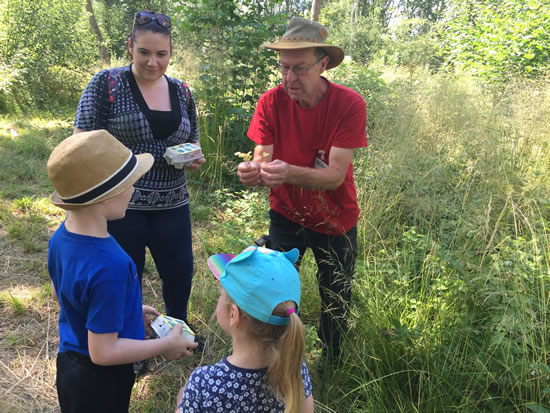
How we run our SEN events
At Outdoor Tribe we run things a little differently than many other ‘providers’ for families with SEN children.
We encourage families to ‘just be’.
We do have a range of activities on offer for families to engage with. However, those who have attended sessions a few times begin to see that being in ‘doing’ mode might not deliver as much wellbeing benefit as actually just giving themselves up to ‘just being’ mode.
What we also notice is that as soon as the parents start relaxing the children seem to do more of the same. And this, we also notice often has positive effects on benefitting family dynamics.

Nature restores equilibrium
Learning to ‘Just be’ in nature can be very soothing to the emotions, helping rebalance and restores equilibrium. This isn’t something you notice, it just happens.
But the quality of the nature connection, nature immersion experience is important.
Going for a bike ride, or a long walk in the woods with other people chatting away will, no doubt, deliver some level of ‘feeling better’ by the end of the exercise.
However, just like mindfulness practice, bringing intention to spend time ‘just being’ in nature on a regular basis, is likely to deliver a longer lasting boost to mental, physical and emotional wellbeing.
Scientific research indicates that spending just 2 hours every fortnight engaging with nature connection and nature immersion can significantly boost physical and mental wellbeing in both children and adults.
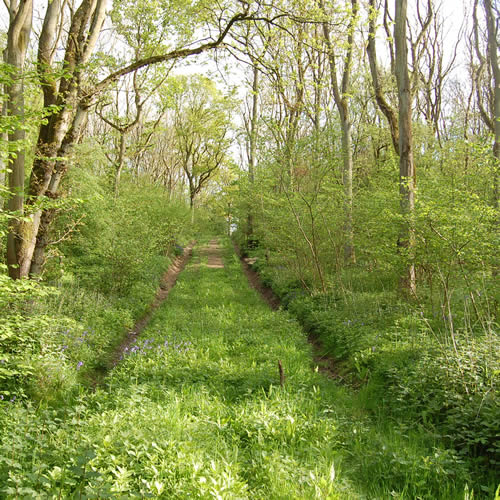
Barriers to benefitting from nature immersion
So, why don’t more parents with children on the spectrum spend time in nature with their kids to help them emotionally rebalance? Well, as you probably know, from your own experiences, it’s often not quite so simple.
We hear recurring stories from parents who attend our sessions of dreading taking their child, or children to outdoor places where there are other families who may well be judgemental about ‘behaviours’.The parents themselves are often coping with anxiety themselves worrying about what might happen each time they go out as a family.
I’ve had it said to me on several occasions that parents feel it’s an easier option to stay at home. Of course that’s not helping either parent or child in the long run, which parents well realise. This leads to more parental stress and guilt, feeding feelings failure. All those negative emotions piling in that are just so unhelpful to the parent’s wellbeing, never mind the kids.
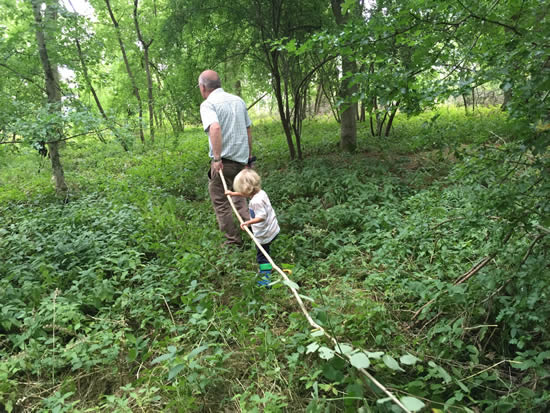
Find out more about us
So what’s the answer – or rather what other options are there – there are no absolute answers in all this, however much you might want one!
It’s challengng to explain how we work in practice, so have a watch of video below, featuring feedback we’vd received from parents.
We run sessions with a high ratio of volunteers, all DBS checked, who are there to support families, but not to provide child supervision.
If you think you’d like to join our Outdoor Tribe then please get in touch.


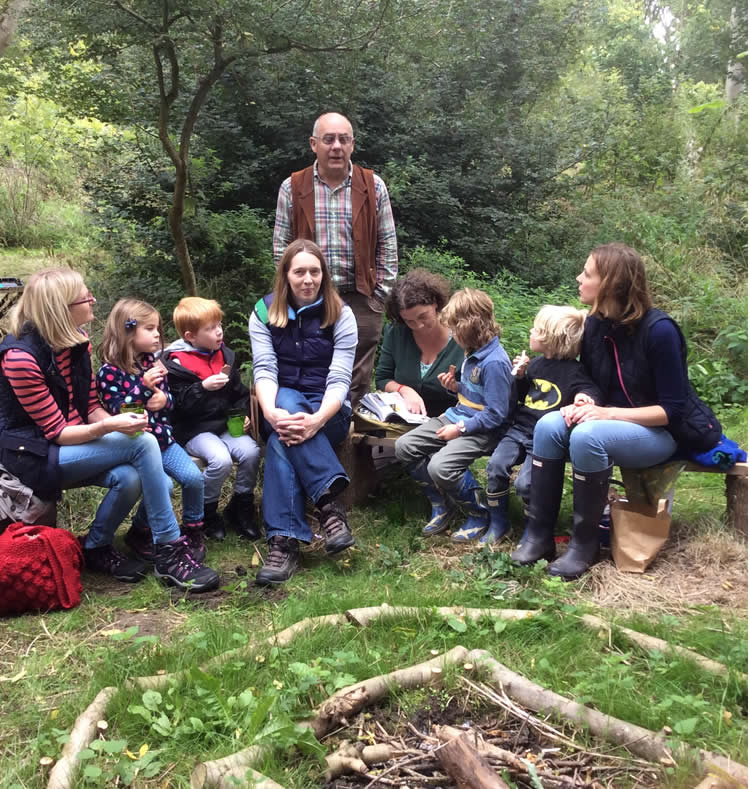

Recent Comments